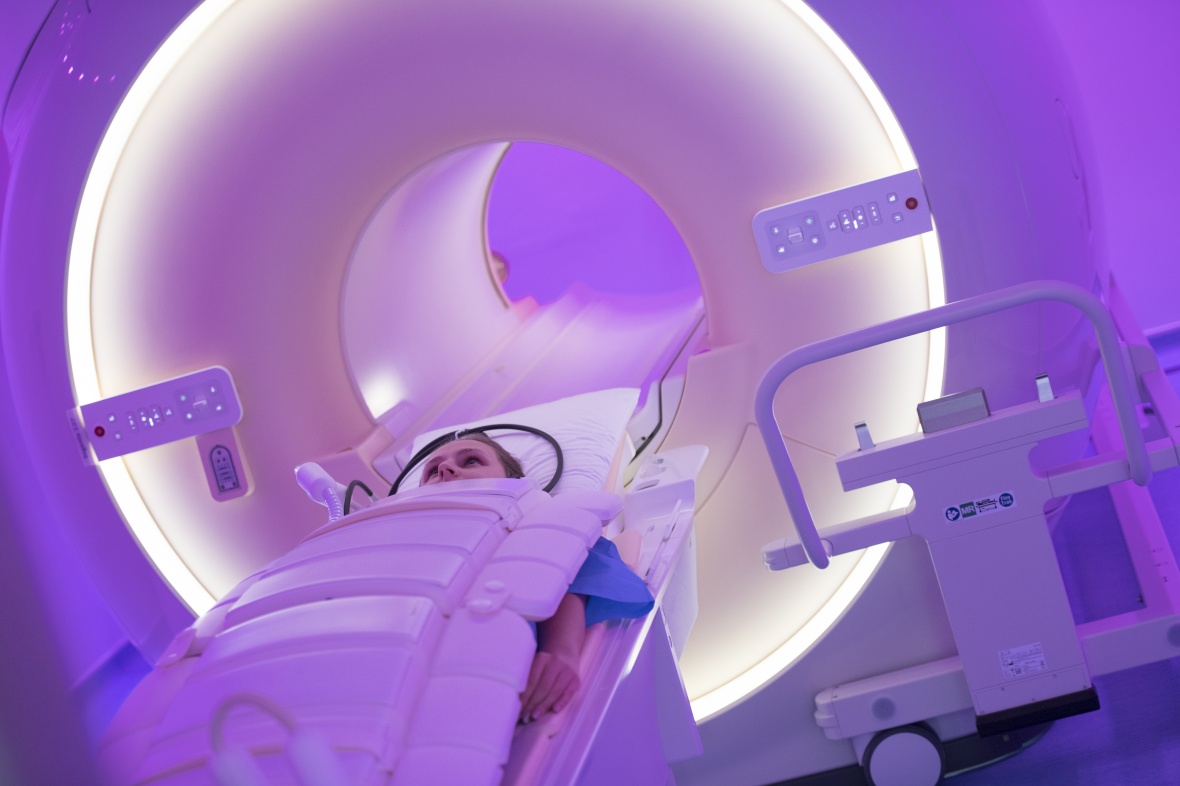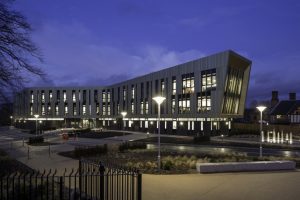
May 24, 2021, by Rob Ounsworth
Doctoral training at Nottingham: do you have a passion for using imaging to transform medical diagnosis and personalised health treatment?
The University of Nottingham-University of Queensland doctoral training programme
The University of Nottingham, in partnership with The University of Queensland (UQ), Australia, is inviting applications to join a doctoral training programme (DTP) dedicated to transforming healthcare by delivering the next generation of biomedical imaging.
The two successful UK candidates will join a cohort of eight doctoral students working across both institutes, with research placements of up to six months at UQ an integral part of the studentship.
The Engineering and Physical Sciences Research Council will fund the successful UK candidates, with support from Nottingham’s flagship Centre for Additive Manufacturing and the Precision Imaging Beacon.
The DTP underlines a deepening collaboration between the University of Nottingham and UQ. Nottingham, home of the Sir Peter Mansfield Imaging Centre and birthplace of MRI, and UQ’s Centre for Advanced Imaging, are world leaders in precision medical imaging.
The cohort will work across both institutes on thematically linked PhD projects, spanning all areas of imaging science, from synthetic chemistry and chemical engineering to physics, biology, and translation.

World-class facilities: the Centre for Additive Manufacturing is based in the Advanced Manufacturing Building
The fully funded, four-year PhDs are in Novel Complementary Diagnostics for Improved Therapeutics / Theranostics.
Dipendra Mistry, in the first year of a PhD in Advanced Medical Imaging with the Precision Imaging Beacon of Excellence, said he was attracted by Nottingham’s expertise across the field of medical physics.
His research into MRI system instrumentation will advance ‘open MRI’, which, by allowing patients to be scanned in almost any position, will support clinical studies such as the impact of acute respiratory distress on covid-19 patients.
Dipendra added: “A place on this DTP provides the opportunities to work across multiple disciplines with world-leading researchers and facilities such the Sir Peter Mansfield Imaging Centre, in partnership with The University of Queensland and with the option for a research placement in Australia.”
Cameron Devine sees the DTP as an opportunity to apply his background in chemistry to an interdisciplinary environment. By using nanoparticles to synthesise new compounds capable of both MRI and treating inflammation in blood vessels, his research could help lessen the global toll of almost 18 million deaths a year from vascular disease.
The closing date for applications is 2 July 2021.
An open day was recently held to introduce the DTP. Please see the following links for a recording of the sessions.
Video 1: ![]() Medical Imaging Virtual Open-day Part 1 Information Slides.mp4
Medical Imaging Virtual Open-day Part 1 Information Slides.mp4
Video 2: ![]() Medical Imaging Virtual Open-day Part 2 Project Briefs.mp4
Medical Imaging Virtual Open-day Part 2 Project Briefs.mp4
Please contact peter.harvey@nottingham.ac.uk for any access issues.
- Optoacoustic and Multi-modal Imagining of Medical Devices (derek.irvine@nottingham.ac.uk)
- Oesophageal and Pulmonary Cell Attachment and Renal Theranostics (derek.irvine@nottingham.ac.uk)
- Optically detected magnetic resonance with diamond (melissa.mather@nottingham.ac.uk)
- Resolving laminar layers using ultra-high field (karen.mullinger@nottingham.ac.uk)
- Development of novel MRI methods as biomarkers for chronic kidney disease (susan.francis@nottingham.ac.uk)
- Hyperpolarised noble gas for pulmonary MRI (thomas.meersmann@nottingham.ac.uk)
- Early Diagnosis and Treatment of Brain Aging using Machine Learning (armaghan.moemeni@nottingham.ac.uk)
Professor Derek Irvine of the Department of Chemical and Environmental Engineering and the Precision Imaging Beacon, leads the UK DTP.
He said: “With UQ we share a vision of training world-leading researchers. These studentships will deliver significant improvements in medical imaging/treatment.
“There will be scope for applicants to develop project themes across a broad range of clinical targets (oncology, neuroscience, renal, and cardiovascular), with a focus on imaging applications in contrast agent development / therapeutics delivery, and clinical/preclinical translation.”
He added: “You will gain access to integrated research training programmes and a comprehensive research programme which will help you to develop the research and transferable skills you need for your career.
“Nottingham has a global reputation for research excellence and this programme will also make connections to our international campuses in China and Malaysia through research projects or international placement programmes.”
Interested applicants are strongly encouraged to make early contact with Professor Irvine (derek.irvine@nottingham.ac.uk) and the Precision Imaging Beacon
(PI-Beacon@nottingham.ac.uk).
No comments yet, fill out a comment to be the first

Leave a Reply